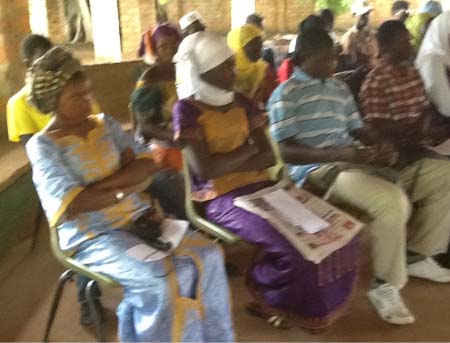
He made this statement while presiding over an official opening of a two-day validation workshop of Micro Finance Capacity Fund (MICAF) held at Jenoi Agricultural Centre in LRR.
He said: “The aim is streamline service provision to the sub-sector by pooling funds into one basket, with a set of selection criteria for beneficiaries, and applying these criteria in selecting MFIs that would qualify for matching grants under the different aspects of capacity building.
“This way, it is hoped that capacity building to Micro Finance Institutions and their support institutions in The Gambia will be more purposeful and should produce greater impact.”
The document, Mr Fatajo intimated, is comprehensive as it contains the structures, policies, procedures, operational policies and performance requirements of beneficiaries, urging the participants to critically review the draft document and improve it.
For his part, Andrew Obara, a consultant in financial services from FRIENDS Consulting in Uganda, said: “We do micro finance capacity buildings and consultancies all over Africa. We are hired by the government of the Gambia through the Rural Finance Project funded by IFAD to work with them for the period of two years.”
According to him, one of the things they are doing as part that contract was to develop micro finance capacity building fund (MICAF) that would help to develop the micro finance industry in such a way that poor people in The Gambia would have sustainable financial services over the long time that are responsive to them and that help them develop their small businesses.
“The idea of MICAF is to coordinate basket of funding that might be possible for the Government of The Gambia plus all its development partners that would like to develop micro finance in this country to put money into,” he said.
Alhagie Mohammed Sawaneh, VISACA Apex General Manager, said the forum was held to look at the document critically and its governance structures and how institutions can access the funds, among others.
According to him, it has been assessed that capacity is one of the key constraints in microfinance development, which prompted IFAD to come up with the initiative to create basket funding for capacity building, which can come from any donor apart from IFAD.
“Any institution that buys the ideas of microfinance basket fund or interested in building the capacities of financial institutions can put their resources into the basket fund and access fund for capacity building,” he added.
Ebrima Gano, acting-executive director of Gambia Women Finance Association (GAWFA), said micro finance is dynamic and everyday new challenges are emerging, which makes it crucial to have such an initiative, in the sense that it will address issues like capacity building, looking at the clientele and institutions as well as the regulators.


